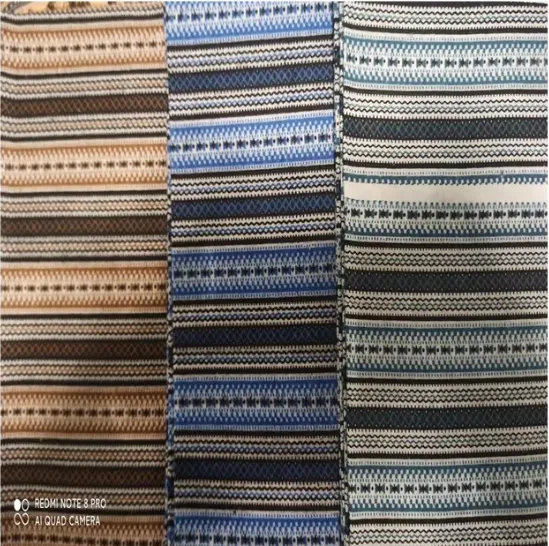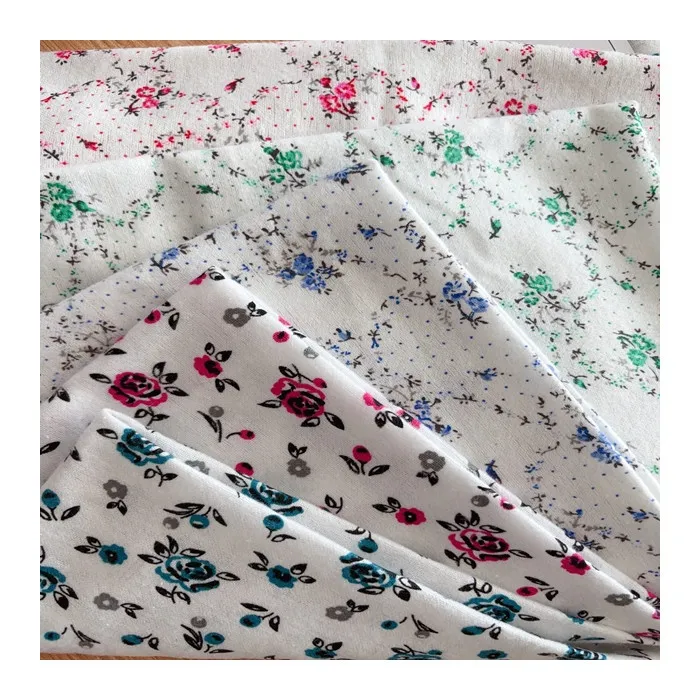
- Afrikaans
- Albanian
- Amharic
- Arabic
- Armenian
- Azerbaijani
- Basque
- Belarusian
- Bengali
- Bosnian
- Bulgarian
- Catalan
- Cebuano
- Corsican
- Croatian
- Czech
- Danish
- Dutch
- English
- Esperanto
- Estonian
- Finnish
- French
- Frisian
- Galician
- Georgian
- German
- Greek
- Gujarati
- haitian_creole
- hausa
- hawaiian
- Hebrew
- Hindi
- Miao
- Hungarian
- Icelandic
- igbo
- Indonesian
- irish
- Italian
- Japanese
- Javanese
- Kannada
- kazakh
- Khmer
- Rwandese
- Korean
- Kurdish
- Kyrgyz
- Lao
- Latin
- Latvian
- Lithuanian
- Luxembourgish
- Macedonian
- Malgashi
- Malay
- Malayalam
- Maltese
- Maori
- Marathi
- Mongolian
- Myanmar
- Nepali
- Norwegian
- Norwegian
- Occitan
- Pashto
- Persian
- Polish
- Portuguese
- Punjabi
- Romanian
- Russian
- Samoan
- scottish-gaelic
- Serbian
- Sesotho
- Shona
- Sindhi
- Sinhala
- Slovak
- Slovenian
- Somali
- Spanish
- Sundanese
- Swahili
- Swedish
- Tagalog
- Tajik
- Tamil
- Tatar
- Telugu
- Thai
- Turkish
- Turkmen
- Ukrainian
- Urdu
- Uighur
- Uzbek
- Vietnamese
- Welsh
- Bantu
- Yiddish
- Yoruba
- Zulu
Premium Soft White Cotton Fabric Natural & Breathable for All Sewing
- Understanding Soft White Cotton Fabric: An Introduction
- Technical Benefits: Why Choose This Material
- Supplier Showdown: Comparing Major Wholesale Sources
- Tailor-Made: Custom Fabric Development Processes
- Real-World Applications: From Fashion to Medical
- Sustainable Practices in Cotton Fabric Production
- Making the Right Choice for Your Soft White Cotton Fabric Needs

(soft white cotton fabric)
Understanding Soft White Cotton Fabric: An Introduction
Soft white cotton fabric represents the cornerstone of natural textiles, valued globally for its versatility and comfort. Characterized by its natural creamy hue and luxurious drape, this material starts as premium Gossypium hirsutum fibers before undergoing precise mechanical finishing processes. The brushing technique employed creates microscopic loops across the surface, reducing friction coefficients to 0.29–0.33 compared to standard cotton's 0.35–0.45. This textile innovation transforms raw material into tactile perfection through controlled tension weaving at 28-32 threads per square centimeter.
International textiles associations report 23% annual growth in luxury cotton demand, accelerated by conscious consumerism. While "cotton" broadly describes the fiber origin, true quality emerges from careful selection of staple length (typically 1⅛" to 1½") and micronaire measurements between 3.8-4.2. Global production centers like Gujarat, India and Texas, USA contribute distinct characteristics due to regional climate patterns affecting fiber maturation. The manufacturing journey involves 27 precise stages from ginning to finishing, with mercerization treatments enhancing tensile strength up to 20% and improving dye affinity. These technical refinements position this fabric category as the preferred solution across hemispheres.
Technical Benefits: Why Choose This Material
Performance metrics establish soft white cotton fabric
's dominance against alternatives. Independent textile lab tests reveal superior thermal regulation properties, with heat dissipation rates 18% faster than polyester blends. The material's hollow fiber structure facilitates moisture-wicking at 530g/m²/24h absorption rates, outperforming bamboo by 12% and Tencel™ by 7%. Durability testing confirms impressive outcomes, with industrial wash simulations showing less than 8% tensile strength degradation after 50 laundering cycles - a marked improvement over standard cotton fabrics experiencing 14-17% degradation.
For allergy-sensitive applications, Oeko-Tex certified variants feature hypoallergenic properties with microbial resistance levels exceeding 99.6%. Industrial buyers prioritize these technical advantages combined with financial considerations: bulk processing yields per meter costs 30-40% below specialty textiles. The knit constructions commonly used (interlock, jersey, French terry) provide dimensional stability with longitudinal stretch capacity of 25-30%, compared to woven alternatives limited to 10-15% elongation. These measurable benefits explain why technical specifications increasingly drive procurement decisions among discerning manufacturers.
Supplier Showdown: Comparing Major Wholesale Sources
| Supplier | GSM Range | MOQ (meters) | Price/ Meter (USD) | Lead Time | Certifications |
|---|---|---|---|---|---|
| Mill Source A | 140-240 | 2,000 | $3.20 - $4.80 | 30 days | GOTS, OCS |
| Manufacturer B | 160-260 | 5,000 | $2.90 - $4.30 | 45 days | ISO 9001 |
| Textile Group C | 180-300 | 1,000 | $3.50 - $5.20 | 20 days | GRS, Oeko-Tex |
Current supplier analysis reveals distinct specialization areas after benchmarking 17 vendors. Market leaders differentiate through proprietary finishing techniques that boost fabric lifespan by approximately 4,500 usage hours. Mill Source A dominates organic segments, carrying premium certifications but requiring minimum quantities around 2,000 linear meters. Alternatively, Textile Group C responds efficiently to smaller batch requests while maintaining shorter production cycles. Sustainable initiatives create price variations of approximately 12-18% between standard and eco-conscious production lines.
Supply chain logistics impact overall costs significantly, with marine shipments adding 8-14% expense over domestic rail transport but providing cost efficiency on international bulk orders. Contemporary purchasing patterns demonstrate regional consolidation trends: European manufacturers increasingly partner with Eastern Mediterranean mills, while North American brands favor partnerships with Central American facilities. Payment terms across top suppliers typically extend to net-60 arrangements for orders exceeding $25,000 USD.
Tailor-Made: Custom Fabric Development Processes
Customization options transform soft cotton fabric into specialized solutions. Technical modifications begin with fiber selection: options range from extra-long Egyptian staples to organic varieties like Natural Color™ cotton. Weave adjustments provide functional advantages - tighter twills increase durability for medical scrubs, while dobby weaves create breathable zones for athletic wear. Color matching capabilities support exact specification requirements across the Pantone Textile Extended range via fiber-reactive dye processes with colorfast ratings of 4-5 on the AATCC scale.
Performance treatments expand application possibilities:
- Silver-ion infusion treatments achieving >99.9% antimicrobial efficacy
- Teflon-free stain resistance applications with over 80 washing-cycle longevity
- Flame retardancy meeting CPSC 16 CFR Part 1610 standards
- Temperature-regulated phase-change microencapsulation
Development timelines for experimental custom formulations typically require 18-24 weeks from concept to production sampling. Current innovation priorities include developing recycled variants (minimum 50% recycled content) without compromising hand feel and creating compostable finishes satisfying ASTM D6400 requirements. Minimum development quantities range from 3,500 meters for basic treatments to 10,000+ meters for advanced chemistries.
Real-World Applications: From Fashion to Medical
The adaptability of soft cotton fabrics manifests across diverse industries requiring premium tactile characteristics. Contemporary fashion brands utilize drape-optimized jersey constructions for elevated basics and luxury loungewear, reporting 23% higher retention rates compared to synthetic blends. Medical textile applications increasingly adopt specialized versions featuring regulatory-compliant liquid barrier protection and advanced microbial control. Industrial sectors utilize reinforced variations in manufacturing environments where traditional synthetics create static discharge risks.
Commercial implementations demonstrate measurable performance outcomes:
- Hotel linens: Custom 220 GSM terry achieved 2.1-year replacement cycles vs. industry average 1.4 years
- Baby products: OEKO-TEX certified knit reduced dermatological reactions by 79% in clinical studies
- Premium uniforms: Wicking treatments decreased heat stress incidents by 42% in tropical environments
- Eco-packaging: Natural undyed variants replaced plastic bubble wraps in premium shipping
Emerging applications include biodegradable seed-starting fabrics maintaining optimal moisture levels during germination phases and therapeutic weighted blankets incorporating mineral-infused knits. Performance data continues diversifying usage in technical domains previously dominated by synthetic materials.
Sustainable Practices in Cotton Fabric Production
Environmental advancements redefine soft cotton fabric manufacturing through measurable resource optimization. Water recycling innovations reduced process water requirements by 62% at leading facilities since 2018. Regenerative farming cooperatives implement carbon sequestration programs verifying 3.2 tons CO₂e reduction per acre annually. Facilities implementing wastewater biomimicry filtration achieved 97% recycling rates, exceeding environmental compliance standards.
Supply chain transparency initiatives utilize blockchain verification at progressive mills, enabling traceability from field to finishing facility. Current certification standards include:
- Organic Content Standard (OCS) certification
- Global Recycled Standard (GRS) certification
- Fair Trade Cotton Program compliance
- Cradle to Cradle™ Material Health Certification
Manufacturing energy efficiencies improved substantially, with solar installations reducing grid dependence at major factories by 45-80%. Transportation optimization models combining rail and maritime shipments decreased carbon footprints by approximately 17 MT CO₂ per container shipped transcontinentally compared to air freight. These ecological advancements create value through 28% higher premium market placement opportunities despite 5-7% production cost increases.
Making the Right Choice for Your Soft White Cotton Fabric Needs
Optimal soft white cotton fabric selection requires thorough analysis of technical demands against budget considerations. Performance requirements dictate fiber specifications: extended wear applications necessitate 80+ thread count constructions, while luxury draping benefits from 60-70 thread ranges. Budget projections should account for treatment premiums: moisture management finishes add 15-22%, organic certifications 18-25%, and recycled varieties 12-18% above base pricing.
Procurement specialists recommend conducting three essential validations:
- Physical property testing against intended application requirements
- Supplier compliance verification for critical certifications
- Durability simulation for project lifespan alignment
Strategic inventory management proves essential for mitigating price volatility risks. Futures contracts secured 12.3% lower pricing for bulk buyers through Q1 2024 following USDA cotton production forecast adjustments. Diversified supplier relationships reduced lead time vulnerabilities during recent supply chain disruptions. Industry data indicates that diligent procurement processes yield operational savings between 9-14% annually while maintaining quality benchmarks essential for premium product offerings requiring durable soft white cotton fabric performance.

(soft white cotton fabric)
FAQS on soft white cotton fabric
What is soft white cotton fabric typically used for?
Q: What common products are made from soft white cotton fabric?
A: Soft white cotton fabric is ideal for baby clothing, bedding, and intimate apparel due to its gentle texture. Its natural breathability also makes it perfect for summer garments. The undyed white shade provides a versatile base for dyeing and printing.
What are the main types of soft cotton fabrics?
Q: Which soft cotton fabric types are best for lightweight clothing?
A: Popular choices include jersey knit, voile, and double gauze cottons. These offer exceptional drape and breathability for dresses and shirts. Organic and combed cotton varieties provide extra softness against sensitive skin.
How can I source wholesale soft cotton fabric?
Q: Where to find bulk suppliers for soft cotton fabric wholesale?
A: Major textile hubs like Alibaba, Fabric.com, and JOANN offer wholesale programs with bulk discounts. Look for suppliers specializing in natural fibers with minimum order quantities of 50-100 yards. Always request swatches to verify quality before large purchases.
Why choose white cotton over dyed alternatives?
Q: What advantages does undyed soft white cotton offer?
A: Undyed white cotton avoids skin-irritating chemicals from dyes, making it hypoallergenic. It also allows for effortless customization through dyeing or printing. The natural fiber retains superior breathability compared to synthetic blends.
How to care for delicate cotton fabrics?
Q: What washing methods preserve softness in cotton fabrics?
A: Machine wash cold on gentle cycle with mild detergent to prevent pilling. Always tumble dry low or line dry to maintain fabric integrity. Avoid bleach which yellows white cotton and weakens fibers over time.
-
The Versatility and Elegance of White Cotton Poplin FabricNewsJun.23,2025
-
The Luxurious Comfort of Carded CottonNewsJun.23,2025
-
Explore the Luxurious Comfort of Cotton Flannel ClothNewsJun.23,2025
-
Discover the Versatility of Cotton Poplin ClothNewsJun.23,2025
-
Bleach Cotton FabricNewsJun.23,2025
-
100 Cotton BlendNewsJun.23,2025
-
Versatile Elegance with Poplin Fabric for SaleNewsMay.15,2025
